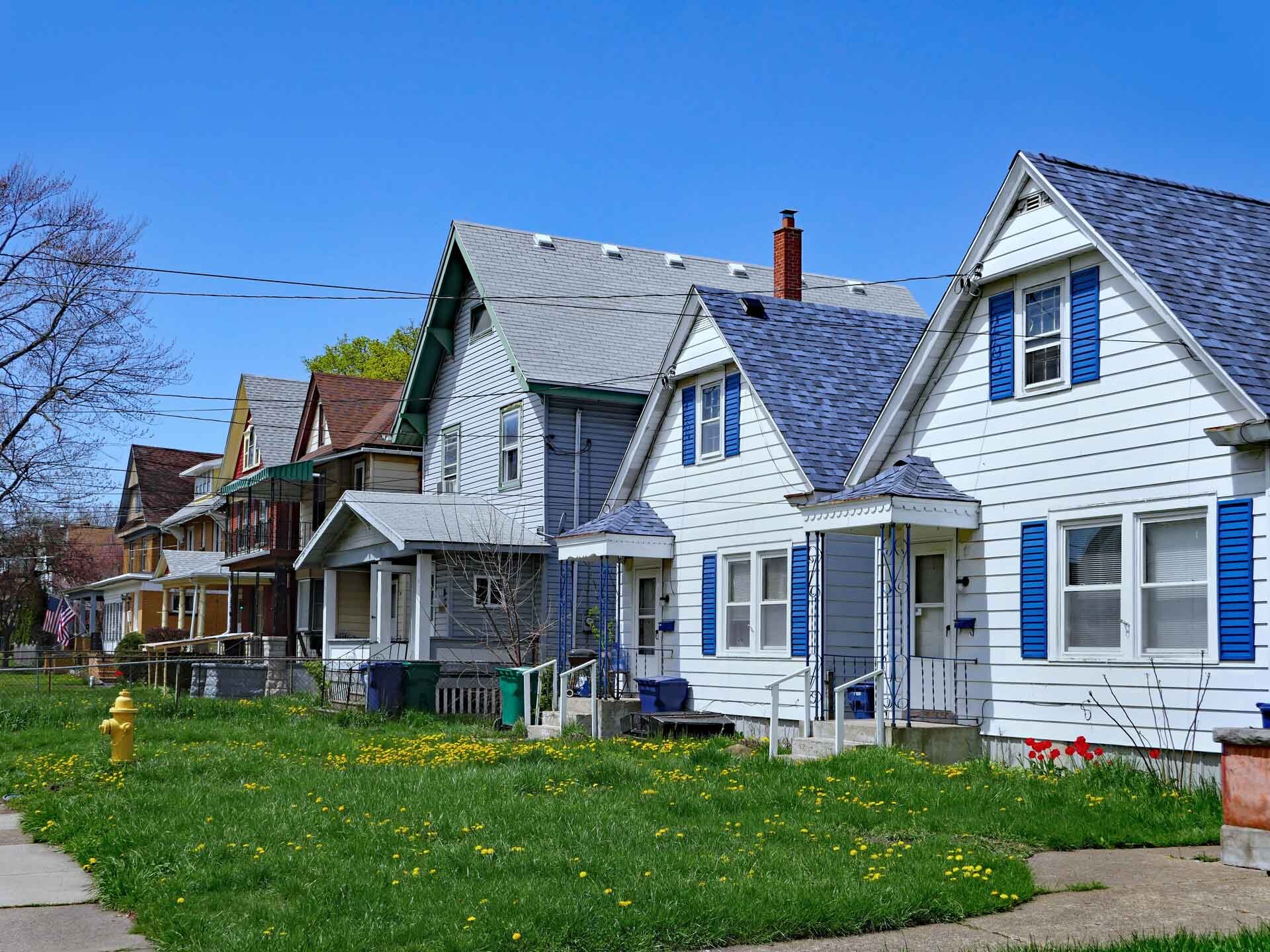Foreclosure occurs when a homeowner is unable to make their mortgage payments on time and has no way to catch up on the missed payments. Because a mortgage is a legal agreement between you and your lender, once you’ve defaulted on the loan, the lender can auction off the property to cover any outstanding debts, leaving you homeless and with terrible credit.
No one wants to receive a notice of foreclosure and yet, in a nationwide study, nearly 1 million Americans were afraid of losing their homes (U.S. Census Bureau Household Pulse Survey, fielded from July 27 to Aug. 8, 2022). Foreclosure can occur from a number of reasons, including:
- Job loss and loss of income
- Divorce or death of a spouse or partner
- Mounting debt, including medical and credit cards
- Moving without being able to sell the home
- Natural disaster
Fast Vegas Home Buyers is a local company operating in NV that has built their business by buying distressed houses and properties in the area for cash. They promise competitive cash offers without the hassle of dealing with real estate agents, title companies, traditional bank financing, and more!
What is Foreclosure?
Let’s say you or your spouse recently lost your job. The bills haven’t stopped coming—utilities, insurance, groceries, and of course, your mortgage—but your income has suddenly dropped or disappeared. Even if you manage to find new employment quickly, the mounting debt and missed payments during that time might be more than you can catch up on. Once you fall behind, it becomes increasingly difficult to recover, and unfortunately, that’s when the foreclosure process begins. For many homeowners, it’s a situation that escalates quickly and feels nearly impossible to escape.
How Long Do You Have To Get Out of Your House After Foreclosure?
Foreclosure doesn’t happen overnight—it’s a legal process that unfolds in stages: missed payments, a formal public notice of default, foreclosure proceedings, a property auction, and ultimately, eviction. The timeline for each of these steps depends on your state’s specific foreclosure laws. In most cases, you have at least 120 days from the first missed payment before the lender can officially begin foreclosure proceedings. Some states provide a longer window, stretching up to nine months or more, especially if a judicial process is required. During this time, expect regular contact from your lender through letters, emails, and phone calls, urging you to take action or explore alternatives like loan modifications or short sales. The earlier you respond, the more options you’ll likely have to avoid losing your home.
The Different Types of Foreclosure
There are two different types of foreclosure you may experience: nonjudicial foreclosure or judicial foreclosure.
What Is Non-Judicial Foreclosure?
A non-judicial foreclosure is the fastest and cheapest way for a lender to foreclose on your NV property. It does not require taking you, the homeowner, to court and can be completed according to state statutes. In the case of non-judicial foreclosure, your lender repossesses your home to sell it and recover whatever debt is owed using what’s called a “power-of-sale” clause in the deed of trust. Not every state allows for this option but, if yours does, the lender will generally choose it to avoid any court costs.
Because non-judicial foreclosures bypass the legal system, the timeline can be extremely short—sometimes just a few months from the first missed payment to the sale of your home. Homeowners are typically notified through a Notice of Default followed by a Notice of Sale, but unlike judicial foreclosures, there’s no courtroom hearing where you can plead your case. That makes it critical to act quickly if you’ve received notice. Exploring solutions like loan modification, repayment plans, or a fast sale to a local cash buyer may be your best chance to regain control and avoid the long-term damage of foreclosure on your credit.
What Is Judicial Foreclosure?
In states that require judicial foreclosure, your lender must file a lawsuit asking the court to issue an order to allow for the sale of the home. The lender must provide you with this letter. Whether you agree or not, you must respond to the letter or the lender will automatically win the case and be allowed to put your home up for a foreclosure sale. When the house is sold, you are still required to pay the difference between what you still owe on the mortgage and the amount the house sold for.
Auctions are not like regular home sales and generally the house is not sold for market value. This means that even if your house is in great shape and worth a lot more than what is left on your mortgage, you may still find yourself owing tens of thousands (if not hundreds of thousands) of dollars for a house you no longer own! This is called a deficiency judgment. It’s an expensive and long process for lenders to take to try and recoup their debt, which is why most prefer a non-judicial foreclosure.
Get an offer today, sell in a matter of days.
How to Sell Your House Before Foreclosure in NV
Let’s break down a few ways you can sell your house, depending on your time frame and situation:

Hire A Real Estate Agent
The first step most Americans think of when selling a house or property is to reach out to a local real estate agent. But there are pros and cons to this option when you are in a difficult situation such as foreclosure. Sure, a good real estate agent can list your property on the MLS and help you get it ready for open houses and daily showings, but they do all of this work so that at the end of the closing process a large chunk of your money from the sale of your house goes to them in the form of the agent’s commission. When you’re already suffering from a mountain of debt and need every penny to pay back your lender, a commission of 3% to 6% of your final sale price may be too hefty an amount to give up.
On top of that, listing your property through an agent often comes with other out-of-pocket expenses you may not be prepared for—staging, professional photos, landscaping, minor repairs, and inspection-related fixes. And if your house doesn’t show well or needs work, it might sit on the market for weeks or even months, further increasing your stress and financial burden.
Plus, there’s the additional fear of not knowing when your house will actually close. Realtors may promise a lot, but at the end of the day you’ll still need to find the right buyer and wait 30+ days for a traditional close. For some homeowners who are facing auction and eviction, even waiting one month might be too long. In high-pressure situations, every day counts—and choosing the traditional sales route could mean losing the small window of time you have left to act.

Short Sale
If you owe more on your house than it’s worth, your realtor may require what is called a short sale. A short sale is necessary when you owe more on your house than the property is currently worth. For example: if you owe $200,000 on your house but in the current market it’s only worth $150,000, you must deal with a short sale. Though it may seem like a good option, it won’t be fast or easy.
To start off, you’ll first need to get your lender’s approval. To qualify for a short sale, you must prove financial hardship using documentation such as W-2s, termination letters, medical bills, or divorce decrees. For a situation such as loss of income, the lender will require that you prove that the loss of income is long-term and unlikely to turn around in your favor. In some cases, you may even need to submit a hardship letter explaining your situation in detail. If the lender approves the short sale, you will need to find a real estate agent and attorney that specialize in short sales, and they will still charge you the same amount as they would if you were selling your house with a traditional home sale.
If your foreclosure hasn’t dragged on for too long and you’ve maintained contact with your lender, it’s likely that they will approve the short sale. This allows them to avoid the time and expense of trying to foreclose on your property, while still recouping some of the loss from the missed mortgage payments. But for the regular American homeowner, the short sale will follow them for the next 5 to 7 years. In some cases, lenders may also require a deficiency payment if the short sale doesn’t fully satisfy the loan amount—adding another layer of financial stress.
You may have sold the house and been able to pay off some of your debt, but the short sale can damage your credit the same as if you had declared bankruptcy. The credit unions include the delinquency on your mortgage(s) to your lenders and the short sale on their records, making it nearly impossible for previous homeowners to get a credit card, buy a car, or move into a new house or property for the same amount of time as a bankruptcy. While short sales may seem like a lifeline, they come with long-term financial consequences that can seriously delay your path to recovery.

Sell Your House AS-IS to A Cash Buyer
If you’re under a strict time restraint to sell your house before a foreclosure progresses to auction and eviction, you do have options! You can try to sell your property with a real estate agent, work with your lender to complete a short sale, or — best of all — turn to a trusted and reliable cash investor to help you with your situation.
Some of the benefits of selling to a direct cash investor include:
- A quick and pain-free closing process. Most cash buyers can close in as little as 7 days, allowing you to move forward fast with no delays caused by financing or underwriting.
- Avoid paying any commissions or fees. With no real estate agent involved, you get to keep more of the final sale amount in your pocket.
- You won’t have to worry about marketing your house and waiting for a buyer. Cash investors are ready to buy now—no showings, no staging, no waiting for offers.
- No need to clean up or complete any repairs! Sell your house exactly as it stands, even if it has structural issues, outdated features, or leftover belongings.
When you sell your home as-is to a direct cash buyer, you not only can avoid losing your home to an auction, but you also may be able to sell the property for enough money to get out of financial debt. Moving on with your life without the burden of foreclosure can offer both financial relief and peace of mind—allowing you to rebuild faster and start fresh on your own terms.he burden of a monthly mortgage payment and debt hanging over your head is one of the best gifts you can give yourself!
Can You Stop Foreclosure Once it Starts?
Pay Off Your Loan & Fees
You’ve found yourself in a difficult situation. Your debt is adding up while your finances remain the same. It’s time to get serious and look at ways to pay down your debt quickly. Do you have any items you can liquidate? Maybe you have friends or family that can gift you money or provide you with a loan until you get back on track. If you are serious about paying down your debt and stopping foreclosure, you may need a financial professional to help you restructure your budget. Use one of these solutions or combine them all to help climb that avalanche of debt and get back to living a life free of stress.
Declare Bankruptcy
As a last resort, bankruptcy may help you stop the foreclosure of your home but it comes with a high cost. The bankruptcy process is complex and will require a lawyer that specializes in bankruptcy law. If the court approves your petition, you will be entered into a government-approved credit counseling program and the bankruptcy will be reported on your credit report for 7 years. A bankruptcy affects all areas of your life, including when you try to purchase a car, apply for a credit card or bank account, and can disqualify you from future rentals.
The Homeowner Affordability and Stability Plan (HASP)
If your debt is higher than your income, you may be eligible for the Homeowner Affordability & Stability Plan (HASP). HASP is a loan modification program targeted at borrowers who are at risk of foreclosure due to insufficient income. This government program was designed to help homeowners in the United States restructure their monthly payments to fit a limited budget. Apply for the program here to see if you qualify.
Sell Your House Fast to a Cash Buyer
Are you ready to sell your house but don’t have the luxury of waiting 30 days or more for a traditional buyer to get through inspections, financing, and underwriting? Is the thought of a short sale sending your credit score into panic mode? Want to wipe the slate clean, pay off lingering debts, and move on with your life—fast? Working with a local, experienced direct home buyer or cash investor might be the ideal solution you’ve been looking for. These buyers are ready with funds in hand to purchase your property in its current condition, with no need for repairs, cleaning, or showings. You won’t have to worry about staging your home, scheduling open houses, or accommodating buyer walkthroughs. In fact, many cash investors buy properties sight unseen, making the process even more convenient. By choosing this route, you can often avoid foreclosure, stop the auction process in its tracks, and protect your credit from further damage.
While it’s true that cash offers are usually below full market value, sellers frequently find that the speed, simplicity, and cost savings more than make up for the difference. You skip the headaches of home prep, repair negotiations, and last-minute financing fallout. There are no agent commissions, appraisal delays, or hidden fees. You can close in days—not weeks or months. Plus, many cash investors offer flexible move-out timelines, allowing you to stay in the home for a few days or weeks after closing if needed. Even better, by beating the bank to the punch, you’ll likely walk away with more than you would if the property were sold at auction, where homes are often offloaded for far less than they’re worth. Selling directly means you stay in control, close on your terms, and leave the stress behind for good. Whether you’re dealing with missed payments, legal notices, inherited property, or just need a fresh start, a direct sale can offer the clean break you deserve—with speed and dignity.
We Buy Houses in Foreclosure & Pre-foreclosure–
Get Your Offer Today!
Does the idea of finally walking away from a property without the storm cloud of foreclosure hanging over your head? Contact a real professional at Fast Vegas Home Buyers to find out more and get a fair cash offer for your property today.

